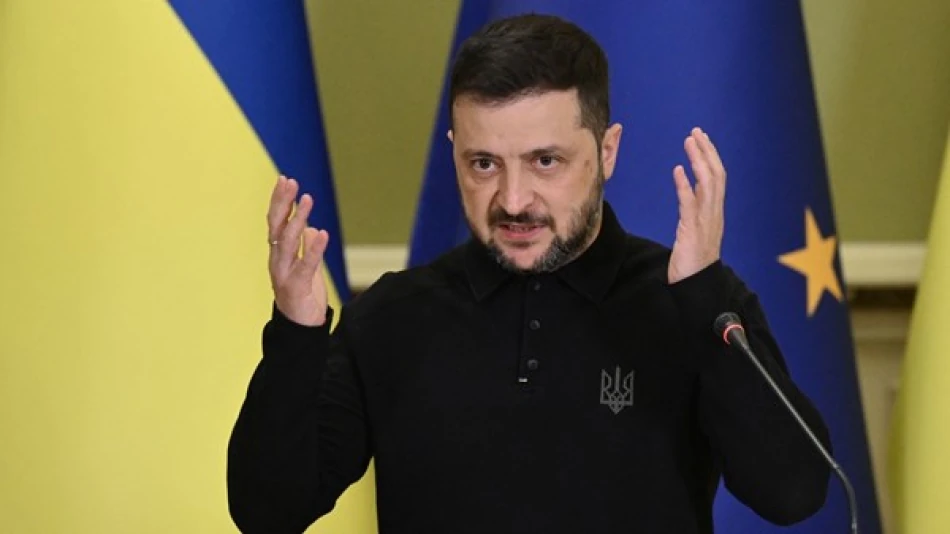
Zelenskyy Anticipates U.S. Sanctions on Russia to Intensify
Zelensky Banks on Trump's Sanctions Threat as Ukraine Seeks Maximum Pressure on Moscow
Ukrainian President Volodymyr Zelensky is positioning himself for crucial talks with Donald Trump next week, expressing confidence that Washington will deliver "strong sanctions" against Russia following the European Union's nineteenth sanctions package. The timing suggests Ukraine is capitalizing on Trump's own threats of escalated economic pressure to forge a unified Western approach that could reshape the conflict's trajectory.
Strategic Coordination Between Kyiv and Washington
Speaking to journalists on Saturday, Zelensky revealed he will meet with the U.S. President during next week's United Nations General Assembly in New York. The Ukrainian leader expressed gratitude that "many Ukrainian proposals were taken into consideration" in the EU's latest sanctions round, signaling that Kyiv's diplomatic influence over Western policy remains substantial nearly two years into the conflict.
"Europe is doing its part," Zelensky noted, clearly framing the expected U.S. measures as the next logical step in coordinated transatlantic pressure on Moscow.
Trump's Sanctions Gambit: Negotiation Through Economic Warfare
The meeting comes as Trump has issued warnings threatening additional sanctions on Russia, but with a distinctly different objective than previous U.S. approaches. Rather than purely punitive measures, Trump appears to view sanctions as leverage to force Moscow into a settlement — a strategy that could either accelerate diplomatic solutions or further entrench Russian resistance.
This approach marks a potential shift from the Biden administration's more open-ended sanctions regime, suggesting Trump may be willing to use economic pressure as a bargaining chip rather than a permanent punishment mechanism.
The Nineteenth Package: Europe's Escalating Economic Pressure
The EU's nineteenth sanctions package represents an unprecedented level of sustained economic warfare against a major power. Few conflicts in modern history have seen such systematic, long-term economic isolation of a nation the size of Russia. The fact that Ukraine's specific proposals influenced this package demonstrates Kyiv's evolution from aid recipient to strategic partner in Western decision-making.
For comparison, the sanctions regimes against Iran and North Korea developed over decades, while the Russia measures have reached similar scope in under two years — a testament to both Western unity and the perceived existential nature of the Ukraine conflict for European security.
Market and Geopolitical Implications
The prospect of additional U.S. sanctions creates several immediate considerations for global markets and international relations. Energy markets remain particularly sensitive to any expansion of restrictions on Russian oil and gas, despite existing price caps and embargo measures.
More significantly, the Trump-Zelensky coordination suggests that any future diplomatic initiatives will likely come from a position of maximum economic pressure rather than sanctions relief as an opening gesture. This "sanctions first, negotiate later" approach could prove more effective than previous diplomatic efforts that offered concessions upfront.
The UN General Assembly as Diplomatic Theater
The timing of next week's meeting during the UN General Assembly is strategically significant. Both leaders will use the global platform to demonstrate Western unity while potentially laying groundwork for future negotiations with Moscow. The setting also allows other world leaders to gauge the durability of U.S.-Ukraine cooperation under Trump's leadership.
Zelensky's ability to secure face-time with Trump, combined with concrete deliverables on sanctions, reinforces Ukraine's position that it remains America's most consequential European partner — a status that transcends individual U.S. administrations and their varying approaches to foreign policy.
Most Viewed News

 Layla Al Mansoori
Layla Al Mansoori






